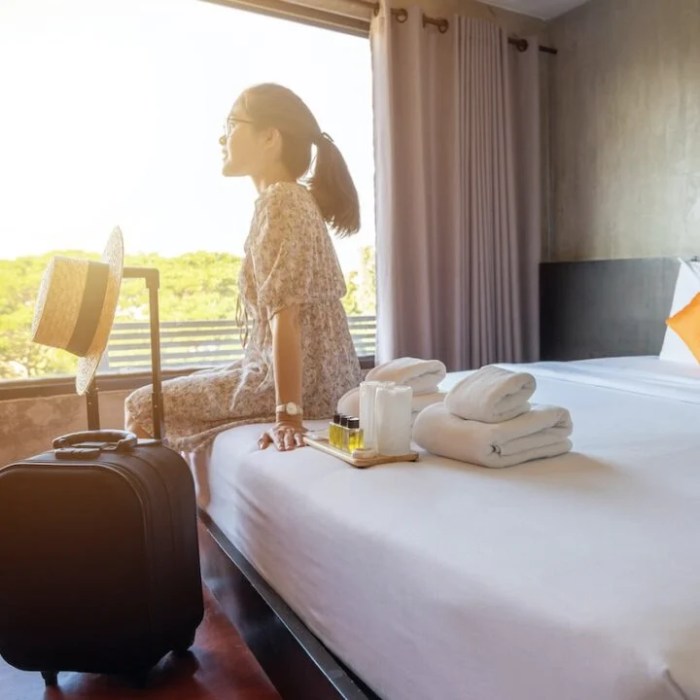Boutique Hotels That Support Local Artisans And Culture
Boutique Hotels That Support Local Artisans and Culture offer a unique and enriching experience, inviting travelers to immerse themselves in the heart of local traditions. These hotels stand apart from mainstream accommodations by embracing individuality and authenticity, often serving as a canvas for local artists and craftspeople. By choosing to stay in boutique hotels, guests not only enjoy distinctive designs and personalized service but also play a key role in preserving and promoting the cultural heritage of the destinations they visit.
In many cases, boutique hotels are more than just places to sleep; they are vibrant hubs that showcase the craftsmanship and artistry of the local community. From handcrafted furniture to locally sourced decor, these establishments strive to reflect the essence of their surroundings. Supporting local artisans not only enriches the guest experience but also contributes positively to the local economy, making travel more meaningful.
Introduction to Boutique Hotels and Their Role in Local Culture

Source: luxurylifestyleawards.com
Boutique hotels represent a unique lodging experience that transcends the standard offerings of traditional accommodations. They serve as a canvas for local culture, showcasing the heart and soul of their surroundings. Emphasizing individuality, these hotels create a personalized atmosphere that resonates with guests, inviting them to immerse themselves in the local way of life.The essence of boutique hotels lies in their distinct characteristics.
Unlike traditional hotels, which often feature standardized rooms and decor, boutique hotels celebrate uniqueness and charm through their design, atmosphere, and personalized service. Each boutique hotel is often locally owned and operated, reflecting the culture, heritage, and artistry of the region. This approach not only offers an enriched experience for visitors but also supports the local economy and community.
Importance of Supporting Local Artisans and Culture
Supporting local artisans is vital for preserving cultural heritage and fostering community growth. Boutique hotels often showcase local craftsmanship, from handmade furniture to locally sourced decor. By integrating these elements into their design, they provide guests with an authentic experience while promoting the work of talented artisans. This not only enriches the hotel’s ambiance but also encourages the sustainability of local crafts and traditions.The role of boutique hotels in promoting local culture extends beyond mere aesthetics.
They often engage in partnerships with local artists, musicians, and craftspeople, creating a dynamic cultural hub. Events such as art exhibitions, workshops, and performances are frequently held in these spaces, drawing in both travelers and locals. This creates a vibrant community atmosphere that benefits everyone involved.
“Supporting local artisans is not just about aesthetics; it’s about preserving the stories, traditions, and skills that define a community.”
In addition to showcasing art, boutique hotels may offer locally inspired cuisine, featuring dishes made from ingredients sourced from nearby farms. This culinary approach not only tantalizes guests’ taste buds but reinforces the hotel’s commitment to the local economy. Guests are encouraged to explore local markets and food producers, enhancing their understanding of the regional culture.Ultimately, boutique hotels serve as ambassadors for their communities, creating a bridge between visitors and the local culture.
By prioritizing local artisans and cultural experiences, they provide a transformative travel experience that fosters appreciation for the uniqueness of each destination.
Features of Boutique Hotels That Support Local Artisans

Source: wixstatic.com
Boutique hotels have carved out a unique niche in the hospitality industry by seamlessly integrating local culture and artisan craftsmanship into their offerings. These hotels serve as vibrant showcases for the rich heritage of their locations, providing guests with an immersive experience that goes beyond mere accommodation. Many boutique hotels proudly display features that highlight local craftsmanship, creating an environment that feels both authentic and inviting.
From the architecture to the decor, every detail is often thoughtfully curated to reflect the artistry and culture of the surrounding community.
Common Features Showcasing Local Craftsmanship
Boutique hotels often incorporate distinct elements that emphasize their partnerships with local artisans. These features not only enhance the aesthetic appeal of the hotels but also create a sense of place. Key features include:
- Locally Sourced Materials: Many hotels use native materials in their construction and design, such as indigenous woods, stones, and textiles, which resonate with the local environment.
- Artwork and Installations: Original artworks created by local artists are prevalent throughout the hotel. These pieces can range from paintings to sculptures, providing a gallery-like atmosphere.
- Handcrafted Furniture and Decor: Boutique hotels often feature furniture and decor made by local craftspeople, showcasing traditional techniques and styles unique to the region.
- Cultural Events and Workshops: Some hotels host events where guests can engage with local artisans, such as pottery or weaving workshops, fostering a deeper appreciation for the local culture.
Incorporating Local Art into Design and Decor
The design elements of boutique hotels often serve as a canvas for local art, creating a harmonious blend between space and creativity. Each hotel might curate its collection differently but the impact remains profound. For instance, a boutique hotel in Mexico might feature vibrant murals painted by local artists, depicting scenes from indigenous folklore. In contrast, a hotel in Italy may adorn its walls with traditional ceramics crafted by nearby artisans, reflecting the region’s rich artistic heritage.
“In every corner of a boutique hotel, local stories are told through the artistry of its people.”
Partnerships with Local Artisans and Craftspeople
Boutique hotels thrive on building strong relationships with local artisans, ensuring that their contributions are recognized and valued. This relationship often involves a commitment to fair trade practices, allowing artisans to thrive within their communities.Examples of such partnerships include:
- Collaborative Design Projects: Boutique hotels frequently collaborate with local artists to create bespoke pieces for their spaces, fostering a sense of community and shared vision.
- Supporting Local Markets: Some hotels provide a platform for artisans to sell their work in on-site shops, offering guests unique souvenirs while supporting the local economy.
- Residency Programs: Certain boutique hotels invite local artists to stay and create within their spaces, resulting in dynamic artworks that evolve over time, reflecting the spirit of the locale.
Benefits of Staying at Boutique Hotels for Travelers

Source: openkey.co
Staying at boutique hotels offers travelers a unique experience that goes beyond mere accommodation. These hotels provide an authentic connection to the local culture and community, turning each stay into a memorable journey filled with deeper understanding and appreciation of the destination.The advantages of choosing boutique hotels are manifold, particularly in how they enhance the travel experience through cultural immersion.
By opting for these unique accommodations, travelers gain the opportunity to engage with local traditions, artisans, and narratives. Unlike large chain hotels, boutique establishments often reflect the character and history of their surroundings, offering visitors a glimpse into the heart of the community. This connection enriches the travel experience, allowing guests to feel like part of the local landscape rather than just passersby.
Cultural Immersion Through Unique Experiences
Staying at boutique hotels provides guests with distinct experiences that resonate with local culture and traditions. These establishments curate experiences that allow guests to engage with the community in meaningful ways. Travelers can expect the following:
-
Local Artisans and Crafts: Boutique hotels often feature handmade decor and furnishings created by local artisans, allowing guests to appreciate the craftsmanship and cultural stories behind each piece.
- Personalized Recommendations: Staff at boutique hotels often share insider tips about the best local restaurants, markets, and events, facilitating authentic cultural interactions.
- Culinary Experiences: Many boutique hotels offer cooking classes or food tours led by local chefs, providing guests with an opportunity to learn about traditional dishes and cooking techniques.
- Community Events: Boutique hotels frequently host or promote local events such as artisan markets, art exhibitions, or music festivals, inviting guests to participate in the vibrant community life.
The ethical implications of supporting local economies by choosing boutique accommodations are profound. When travelers select these hotels, they contribute to the financial sustainability of local businesses and artisans. This choice promotes the preservation of culture and encourages the continuation of traditional practices. By investing in these local enterprises, travelers help to create employment opportunities and support the livelihoods of community members, fostering a more equitable tourism model.Through immersive experiences, ethical choices, and unique cultural offerings, staying at boutique hotels transforms ordinary trips into extraordinary adventures.
Travelers not only enjoy comfortable accommodations but also play a part in supporting and celebrating the rich tapestry of local culture and craftsmanship.
Case Studies of Successful Boutique Hotels
Boutique hotels are becoming renowned for their commitment to local artisans and culture, creating unique experiences that resonate with travelers. By adopting business models that prioritize local engagement, these hotels not only provide guests with memorable stays but also contribute to the communities they inhabit. Below are examples of boutique hotels that have successfully merged their operations with local culture, showcasing the impact of such practices.
Hotel de la Paix, Geneva
Located on the shores of Lake Geneva, Hotel de la Paix embodies the spirit of Swiss craftsmanship. The hotel features locally sourced materials for its furnishings and collaborates with Swiss artisans to create bespoke decor, reflecting the region’s rich heritage. The hotel’s business model involves partnering with local craftsmen to design limited-edition pieces for each room. This approach allows guests to experience a sense of place and supports the local economy.
Travelers have shared their delight in the hotel’s attention to detail, with one guest noting,
“It felt like I was immersed in Swiss culture the moment I stepped into my room. Every piece had a story.”
Casa de la Flora, Thailand
In Khao Lak, Casa de la Flora stands out for its commitment to sustainable luxury and local artisanship. The hotel’s architecture features traditional Thai design elements combined with modern aesthetics, utilizing local builders and materials to create harmony with the surrounding environment.Casa de la Flora conducts workshops where guests can learn about traditional Thai crafts such as pottery and textile weaving from local artisans.
This initiative not only enriches the guest experience but also empowers the artisans. Testimonials reflect this unique engagement, with one traveler expressing,
“Learning from the artisans gave me a deeper appreciation for Thai culture. I left with both new skills and treasured memories.”
Albergo Diffuso, Italy
Albergo Diffuso in the Italian region of Friuli Venezia Giulia offers an innovative concept where guest accommodations are spread throughout the village in restored historical buildings. This model fosters a genuine, immersive experience in local culture.The hotel collaborates with local farmers and craftsmen to curate the dining experience, featuring seasonal and locally-sourced ingredients. Guests often rave about the authenticity of their culinary experiences.
A visitor remarked,
“Each meal was a journey through the flavors of the region, and I loved meeting the people behind the food.”
The Hoxton, Paris
The Hoxton in Paris successfully blends chic design with local culture, featuring artwork from Parisian artists throughout its spaces. The hotel hosts regular events, including talks and exhibitions that celebrate the vibrant art scene of the city.This commitment to local culture extends to its partnerships with nearby businesses, providing guests with curated city guides that highlight lesser-known local experiences. A guest shared their enthusiasm:
“Staying at The Hoxton made me feel like a true Parisian. The local recommendations were spot on!”
These case studies illuminate how boutique hotels can successfully integrate local culture into their business models, offering travelers enriching experiences while supporting the artisans and communities around them.
Strategies for Boutique Hotels to Enhance Support for Local Artisans
Boutique hotels have a unique opportunity to support local artisans and promote cultural heritage, creating an enriching experience for both guests and the community. By implementing thoughtful strategies, these hotels can forge strong relationships with local craftsmen and artists while showcasing their talents and stories.One effective approach is to create a platform for artisans to connect with the hotel, allowing for collaboration and mutual benefit.
This can be achieved through various innovative strategies that not only enhance guest experience but also empower local creators.
Innovative Strategies for Collaborating with Local Artisans
Building connections with local artisans not only enriches the guest experience but also supports the community. Here are several strategies boutique hotels can implement:
- Host Artisan Workshops: Organizing hands-on workshops where guests can learn from local artisans creates a personal connection to the culture. These workshops can range from pottery classes to weaving or cooking sessions, allowing guests to immerse themselves in local traditions.
- Feature Artisan Products in Guest Rooms: Boutique hotels can showcase locally made products, such as handcrafted furniture, textiles, or decor in guest rooms. This not only enhances the aesthetic but also gives guests a story to cherish about their accommodations.
- Create an Artisan Market: Hosting a monthly or seasonal market can provide local artisans with a platform to sell their goods. Guests can enjoy shopping for unique souvenirs while interacting with the craftsmen behind them, fostering a sense of community.
- Curate Local Art Exhibits: Collaborating with local artists to display their work in the hotel can create an inspiring environment. This initiative not only beautifies the space but also allows guests to appreciate and purchase art that reflects the local culture.
- Offer Local Artisan Packages: Boutique hotels can design packages that include experiences with local artisans, such as guided tours of their studios or exclusive meet-and-greets. This adds value to the guest’s stay while directly benefiting the artisans involved.
Showcasing Local Events and Cultural Activities
Promoting local events and cultural activities is essential for boutique hotels aiming to connect guests with the surrounding community. By highlighting these experiences, hotels can enrich their guests’ stays and support local initiatives.
- Partner with Local Event Organizers: Establishing partnerships with local event organizers can help hotels keep guests informed about upcoming festivals, markets, or cultural performances. Providing information at the front desk or in guest welcome packets can enhance the local experience.
- Curate a Local Events Calendar: Featuring a regularly updated calendar of events on the hotel website or in common areas allows guests to easily discover the vibrant cultural landscape. This can include art shows, music festivals, and culinary events, ensuring guests can immerse themselves in local life.
- Offer Shuttle Services to Events: Providing transportation to local events adds convenience for guests and encourages participation in community activities. This service not only enhances the guest experience but also shows support for local culture.
- Host Cultural Nights: Organizing themed evenings that highlight local cuisine, music, and traditions allows guests to experience the culture without leaving the hotel. Collaborating with local chefs and musicians can create memorable experiences.
Promoting Local Artisans in Hotel Marketing and Branding
Incorporating local artisans into the hotel’s marketing and branding efforts can attract guests who value authenticity and cultural experiences.
- Feature Artisans in Marketing Materials: Highlighting local artisans in brochures, social media posts, and newsletters can create a narrative that resonates with guests. Sharing their stories and the significance of their crafts adds depth to the hotel’s brand.
- Collaborative Branding Opportunities: Creating co-branded products or experiences with local artisans can enhance the hotel’s image as a supporter of the local community. This could include limited edition items for sale that feature both the hotel and the artisans’ branding.
- Engage Guests in Storytelling: Inviting guests to share their experiences with local artisans on social media platforms helps increase exposure for both the hotel and the artisans. User-generated content adds authenticity and creates a sense of community.
- Highlight Artisan Collaborations on Hotel Website: Dedicate a section of the hotel website to showcasing partnerships with local artisans, including profiles, interviews, and featured products. This helps prospective guests understand the hotel’s commitment to supporting local culture.
The Future of Boutique Hotels and Local Culture
Boutique hotels are uniquely positioned to embrace and foster local culture, offering travelers an immersive experience that goes beyond just a place to stay. As the industry evolves, these hotels are increasingly integrating local art, traditions, and community engagement into their core operations. The future holds exciting potentials, but also challenges that must be navigated to maintain this commitment to local artisans.Emerging trends in the boutique hotel industry indicate a growing emphasis on sustainability, authenticity, and community involvement.
Hotels are recognizing the value of creating meaningful connections with local artisans, craftspeople, and cultural organizations. By prioritizing local partnerships, boutique hotels offer guests an authentic experience that reflects the rich tapestry of the regions they inhabit.
Emerging Trends in Boutique Hotels Supporting Local Culture
Several trends are shaping the future of boutique hotels as they strive to support local culture. These include:
- Sustainability Initiatives: Many boutique hotels are adopting eco-friendly practices, sourcing local materials, and supporting artisans who prioritize sustainable methods. This not only helps the environment but also strengthens connections with local communities.
- Artisan Collaborations: Collaborations with local artists and craftsmen are becoming common, with hotels displaying and selling handcrafted items, thus providing artisans with visibility and income.
- Experiential Offerings: Boutique hotels are increasingly offering experiences that allow guests to engage with local culture, such as workshops led by local artisans, cooking classes, and guided cultural tours.
- Community Engagement: Many hotels are investing in community projects, sponsoring local events, and supporting cultural festivals, thereby enhancing their commitment to the surrounding culture.
The relationship between boutique hotels and local artisans is not without its challenges. As hotels strive to maintain their commitment to local culture, they may face obstacles such as sourcing consistent quality handcrafted items or navigating the balance between commercial interests and genuine support for artisans.
Challenges in Supporting Local Artisans
Maintaining a commitment to local artisans can be complex, with several significant challenges arising:
- Quality Control: Ensuring consistent quality from artisans can be difficult, particularly if they are small-scale producers with varying levels of experience.
- Market Competition: Boutique hotels may compete with larger hotel chains that can offer lower prices on mass-produced items, making it harder for local artisans to compete.
- Resource Limitations: Some artisans may lack the resources or skills to scale their production to meet hotel demands while maintaining their artisanal quality.
- Changing Consumer Preferences: As traveler preferences evolve, boutique hotels must adapt their offerings to meet guest expectations while staying true to local culture.
Technological advancements and social media play a crucial role in promoting boutique hotels that value local culture. Through effective use of these platforms, hotels can showcase their partnerships with local artisans, share stories that highlight their commitment to the community, and create a vibrant online presence that attracts travelers seeking authentic experiences.
The Role of Technology and Social Media
Technology and social media are essential tools for boutique hotels looking to enhance their connection with local culture.
- Increased Visibility: Social media allows boutique hotels to reach a wider audience, showcasing local artisans’ work to potential guests and creating buzz about unique offerings.
- Storytelling: Hotels can share compelling narratives about their artisan partnerships, enhancing guests’ emotional connection to the local culture and the stories behind the handcrafted items.
- Online Community Building: Platforms like Instagram and Facebook enable hotels to foster a sense of community by engaging with guests and local artisans, encouraging interaction, and building loyalty.
- Feedback and Improvement: Technology allows boutique hotels to gather feedback from guests about their experiences with local artisans, helping them improve offerings and strengthen partnerships.
In an era where travelers increasingly seek authentic connections to the places they visit, boutique hotels that prioritize local culture and artisans are likely to thrive. Embracing these trends while navigating challenges will define the future landscape of boutique hospitality and its impact on local communities.
Additional Considerations for Travelers
Traveling to boutique hotels that embrace and promote local culture offers a unique opportunity to immerse oneself in the community. However, recognizing which hotels genuinely support local artisans can require a keen eye and some thoughtful engagement. Being mindful of how to connect with the local culture not only enhances your travel experience but also positively impacts the communities you visit.Identifying boutique hotels that are genuinely committed to local culture involves looking for specific features and certifications.
Consider the following guidelines to help you choose the right accommodation.
Identifying Authentic Boutique Hotels
When searching for boutique hotels that prioritize local culture, it’s beneficial to look for the following signs of authenticity and commitment.
- Local Partnerships: Hotels that showcase local artisans through artwork, crafts, and decor often collaborate with nearby craftsmen, farmers, and creators.
- Community Engagement: Hotels that provide information about local events, cultural traditions, or workshops demonstrate a commitment to supporting the community.
- Sustainable Practices: Look for hotels that practice sustainability, as they often focus on local sourcing and preserving cultural heritage.
- Positive Reviews: Check reviews that highlight interactions with local culture and praise the hotel’s support for artisanship.
Connecting with local artisans and communities while staying at boutique hotels can enrich your travel experience. Here are ways to engage meaningfully during your stay.
Engaging with Local Artisans
Engaging with the local community while staying at a boutique hotel can lead to memorable experiences and connections. Here are some effective ways to become involved.
- Participate in Workshops: Seek out hotels offering classes or workshops led by local artisans, such as pottery, weaving, or cooking classes, to learn directly from the creators.
- Attend Local Markets: Many boutique hotels provide information on nearby markets where local artisans sell their crafts. Visiting these markets supports the community and allows for personal interactions.
- Support Local Businesses: Purchase handmade items directly from artisans rather than mass-produced souvenirs, ensuring that your money contributes to local livelihoods.
- Engage in Conversations: Talk to hotel staff about local culture and recommendations for engaging with artisans; they may offer insights that enhance your visit.
Lastly, your feedback can greatly influence the sustainability of boutique hotels that support local culture. Leaving constructive feedback not only helps the hotel improve but also encourages their commitment to local artisanship.
Importance of Leaving Feedback
Leaving thoughtful reviews and feedback is crucial for boutique hotels that focus on local culture and artisanship. Your insights can help hotels understand what works and what needs improvement.
- Encouraging Best Practices: Positive feedback can motivate hotels to maintain or enhance their focus on supporting local artisans, fostering a cycle of support.
- Influencing Future Travelers: Your reviews inform other travelers about the hotel’s commitment to local culture, guiding them to make informed choices.
- Providing Constructive Criticism: Offering suggestions for improvement can help hotels better serve both their guests and the local community.
- Creating Awareness: Highlighting aspects of the hotel that promote local culture raises awareness among hotel management and staff, reinforcing the importance of community engagement.
Final Wrap-Up
In conclusion, Boutique Hotels That Support Local Artisans and Culture provide a wonderful opportunity for travelers to connect with the places they visit in a deeper way. By celebrating local talent and traditions, these hotels create memorable experiences that resonate long after a guest’s stay. As the industry continues to evolve, the commitment to fostering local culture within boutique accommodations will remain an essential aspect of meaningful travel, encouraging all to explore the world with an open heart and a curious mind.
Expert Answers
What defines a boutique hotel?
A boutique hotel is typically a small, stylish hotel that offers personalized service and a unique atmosphere, often reflecting the local culture and design.
How do boutique hotels support local artisans?
Boutique hotels often collaborate with local artisans for decor, furniture, and artwork, showcasing their craftsmanship and promoting local culture.
Why should I choose a boutique hotel over a chain hotel?
Choosing a boutique hotel allows you to experience authentic local culture, enjoy personalized service, and support local economies.
Can I find local crafts in boutique hotels?
Yes, many boutique hotels incorporate local crafts into their decor and offer items for sale, allowing guests to take home a piece of the local culture.
How can I engage with local artisans during my stay?
Guests can ask hotel staff for recommendations on local artisan workshops, markets, or events to attend while visiting.





